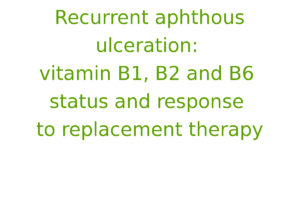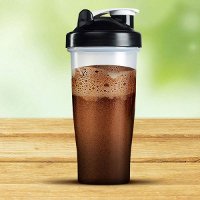University Department of Oral Medicine and Pathology, Glasgow Dental Hospital and School, Glasgow, G2 3JZ, Scotland.
An evaluation of the thiamine, riboflavin and pyridoxine (vitamin B1, B2 and B6) status of 60 patients with recurrent mouth ulcers was performed. Seventeen patients (28.2%) were found to be deficient in one or more of these vitamins. Replacement therapy of these vitamins was given to a study group of deficient patients and a non-deficient group for one month.
At the end of therapy and after a follow-up period of 3 months, only those patients who had a B complex deficiency had a significant sustained clinical improvement in their mouth ulcers. Vitamin B1, B2 and B6 deficiencies should, therefore, be considered as another possible precipitating factor in recurrent aphthous ulceration.
Results
The results of initial assay for vitamin B1, B2 and B6 showed that of the 60 patients studied,
- 5 (8.3%) had reduced B1 levels,
- 4 (6.7%) had reduced B2 levels,
- 6 (10%) were low in vitamin B6
- and 2 (3.3%) had combined deficiencies.
Therefore a total of 17 patients (28.2%) ofthe RAU subjects had a deficiency of one or more of these B vitamins.
The original text taken from a:
![]() http://onlinelibrary.wiley.com/doi/10.1111/j.1600-0714.1991.tb00950.x/abstract
http://onlinelibrary.wiley.com/doi/10.1111/j.1600-0714.1991.tb00950.x/abstract
Journal of Oral Pathology & Medicine, September 1991











Comments
“Recurrent aphthous ulceration: vitamin B1, B2 and B6 status and response to replacement therapy”